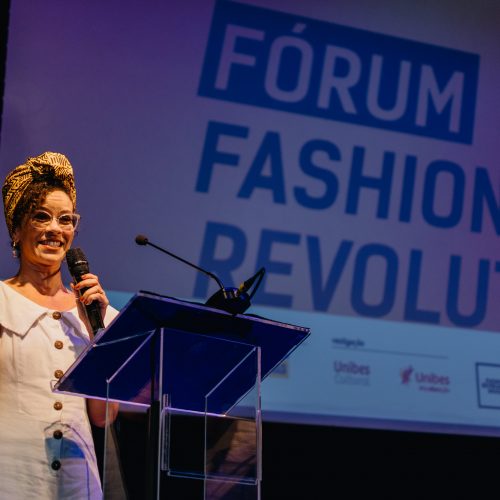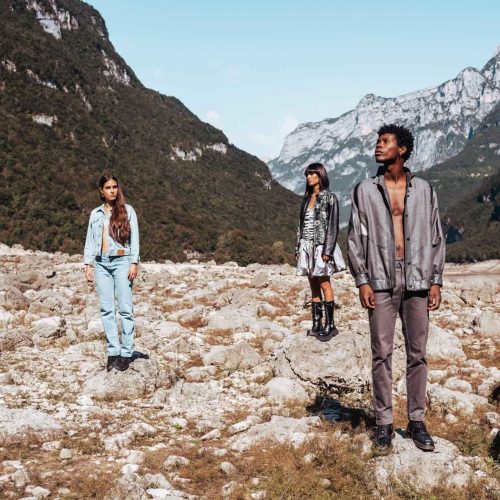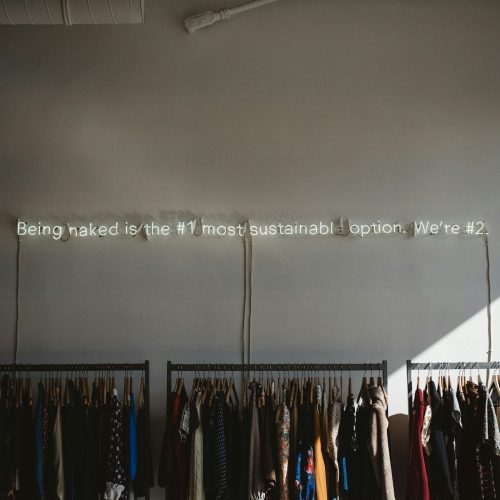Fashion Activism | Interview with Clare Press, Australian Vogue’s Sustainability Editor-at-Large
Clare Press is in all conversations on sustainability. Over the past two years, many of the sustainable fashion designers interviewed by Luxiders Magazine point to her as one of the people who inspire them the most. The presenter of the Wardrobe Crisis podcast, which we totally recommend, and Australian VOGUE's Sustainability Editor-at-Large is becoming a powerful fashion activist. Why is she doing so? Read our exclusive interview with Clare Press.
This interview originally appears as part of a huge article about Fashion Activism,
published in Luxiders Magazine Print Issue N.3, AW 2019/20, on sale HERE.
In 2018, Clare Press was made Global Ambassador for the Ellen MacArthur Foundation’s Make Fashion Circular initiative. She’s part of the Fashion Roundtable team in the UK, and has been a member of Australian advisory board of Fashion Revolution since 2014. She sits on Copenhagen Fashion Week’s Sustainability Advisory Board and is one of Global Fashion Agenda’s Content Experts. In 2019, she was named one of the Australian Financial Review’s 100 Women of Influence.
Why did you become a fashion activist?
I changed my professional life to focus on sustainable fashion after the Rana Plaza factory disaster. I joined the advisory board of Fashion Revolution, and decided to use my voice, and my platform as an established fashion journalist, to advocate for a more sustainable fashion industry. I also wrote a book, "Wardrobe Crisis, How we went from Sunday Best to Fast Fashion", examining our broken fast fashion system. But I don’t think I would have called myself as fashion activist back then…
I don't think I would have call myself as fashion activist back then. However, I happily do now! I believe we should all be activists in order to advocate for change in the areas that are important to us. I now throw all my energies into fashion activism. I desperately want this industry that has been my professional home for the past two decades to clean up its act.
Fashion can be a powerful force for positive change, particularly in terms of female economic empowerment. There are more than 60 million garment workers worldwide and most are young women with children - alas most are not paid a living wage.
The fashion industry also has terrible impacts on the environment. Our current linear system is based on take, make, discard. It results in overproduction and ridiculous amounts of fashion and textile waste. In Australia, where I live, the average person consumes 27 kilos of fashion and textile each year, and throws 23kilos in the bin. Crazy! The current system puts pressure on rivers and fresh water supplies, soil (thanks to cotton) and even the oceans (thanks to microfiber pollution). I’m an activist because I believe fashion can and should be regenerative and restorative - and fair.


What are you doing to reduce the problems generated by the current fashion industry?
I’m about to start a 3-month shopping detox as part of the Slow Fashion Season campaign - which is a bit controversial for me, given that I work in magazines.
I was persuaded, by my friend Cameron Saul, founder of Bottletop, during our podcast interview, to give it a go in order to get people thinking about their consumption. I thought about it very carefully because I believe strongly in supporting ethical and sustainable fashion businesses committed to doing fashion better, especially the small ones.
However, I’m doing this in protest over the UK government’s failure to take the Environmental Audit Committee’s Fixing Fashion Report seriously. MPs recently responded to the report with a complete failure to take up any of the recommendations, which is disappointing.
I’m an activist because I believe fashion can and should be
regenerative and restorative - and fair.
What objectives have you set to achieve next year 2020 and in which projects are you currently collaborating to achieve these goals.
I’m excited to keep growing Wardrobe Crisis. Last spring I went to Hamburg to record a show with Greenpeace Germany’s Kirsten Brodde, who led the Detox campaign.
I’ve been commissioned by the Ethical Fashion Initiative, which is part of the UN’s International Trade Centre, to produce new podcast series all about how the organization is using ethical fashion to advance the Global Goals. These 17 goals - also known as the UN Sustainable Development Goals - are the best framework we have for a sustainable future. The podcast launched in September.
My big personal goal is to write (and finish) my fourth book, which is all about the future of fashion.
Get to know more about Clare Press
A passionate advocate for the circular economy and sustainable, ethical fashion, Clare Press is the industry’s go-to journalist on the subject, globally. Clare is the author of three books: "The Dressing Table" (Penguin, 2011), a collection of essays on style; "Wardrobe Crisis, How We Went From Sunday Best to Fast Fashion" (Nero), named one of the Best Books of 2016 by The Age and the Sydney Morning Herald; and "Rise & Resist, How to change the world", about activism and published by Melbourne University Press in October 2018.
+ info: Clare Press
+ postcast: Wardrobe Crisis




